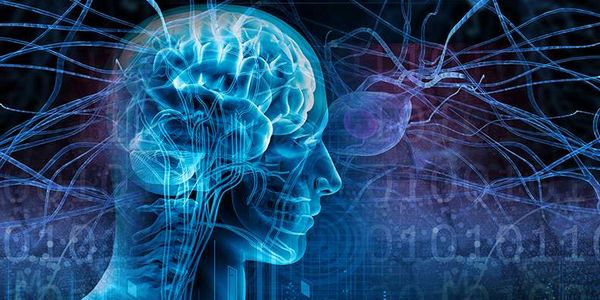speech disorders - what is this disease, the cause of the? Description, symptoms and prevention of speech disorders disease

speech disorders - a collective term, which includes various abnormalities in language development. Speech disorders are classified according to the degree of symptoms and disorders of development - it can be a complete loss of speech or trouble understanding or reproduction of individual groups of sounds or specific words.
speech disorders - Causes
The main reasons for speech disorders belong:
- Pathology in the structure of the organs of speech – teeth, language, soft or hard palate, lips (eg, tongue-tie, cleft palate, malocclusion, etc.);
- injuries speech zone during childbirth;
- low mobility of the lips and tongue;
- delayed mental development of children, and as a consequence of a delay of speech development;
- difficulty in distinguishing sounds by ear, with normal hearing in the child;
- gibberish in the child's residence environment.
Symptoms of speech disorders
Depending on the type of disorder symptoms may differ. It should seek assistance from the specialist, if your child, there are vocal function disorders, artikulyatsii, reading skills, phonation, violation rate of speech; Defects in the normal hearing zvukoproiznoshenija; the process of writing disorder, proiznositelnoj organization of speech; hypoplasia or absence of speech.
speech disorders - Diagnosis
It is necessary to use a method of differential diagnosis, It should be distinguished from speech disturbances of hearing disorders. It is also necessary to assess the hearing. In case of severe problems with speech, necessary to carry out tests of non-verbal abilities, and general psychiatric evaluation, since when ASD is characterized by delay and speech abnormalities.
There are also many specific tests articulation, as well as expressive and receptive language.
speech disorders - Types of diseases
Allocate Two large groups: violation of oral and written speech violation.
Violations of speech include:
1. disorders phonational (external) speech processing:
- dysphonia or aphonia – It manifests itself in the form of violations of strength, pitch and timbre of voice, It occurs due to pathological changes of the vocal apparatus;
- bradilaliya – It manifests itself in the form of abnormally slow rate of speech;
- tachylogia - a violation of speech, in which the characteristic pathological accelerated rate of speech;
- stuttering - is characterized by frequent repetition or prolongation of sounds or syllables of individual, as a result of the convulsive state speech apparatus muscles;
- dislaliya – zvukoproiznosheniya defect with normal hearing and intact innervation of the vocal apparatus;
- rhinolalia - manifested in the form of violations zvukoproiznosheniya and voice changes timbre, due to anatomical and physiological defects of the vocal apparatus. characterized by a distorted reproduction of speech sounds for the patient rhinolalia, rather than what that individual;
- дизартрия – возникает при органических поражениях центральной нервной системы и расстройствах процесса иннервации речевого аппарата, It appears as a function of speech violations zvukoproiznositelnoy;
- dyslexia – при данном нарушении отмечается избирательная способность к овладению навыком чтения и письма, learning ability is maintained;
- alexia – violation of reading and reading comprehension skills, может проявляться в виде непонимания отдельных слов или же простых предложений;
2. Violations of the structural and semantic (internal) registration statements:
- alalia - arises due to lesions of speech areas of the cerebral cortex in utero, проявляется как полное отсутствие или недоразвитие речи.
- aphasia - appears as a complete or partial loss of speech function, lesions due to local speech zones cortex (eg, with craniocerebral injuries, cerebrovascular disorders etc.).
Violations of writing belong:
1. dysgraphia – это неспособность или трудности в овладении письмом при нормальном интеллекте.
2. Agraphia - the complete loss of the ability to write, while maintaining full intelligence, as well as maintaining the coordination of movements of the upper extremities.
speech disorders - Patient action
The patient needs help professionals such as the: speech therapist, pathologist, pediatrician, psychologist, psychiatrist.
Treatment of speech disorders
Certain types of speech disorders may disappear with age, другая часть требует помощи логопеда. Tactics and features of treatment are determined depending on the type of violation and the stage of disease progression. Babies, with severe speech disorders, необходимы обязательные занятия с логопедом в речевых группах специализированных логопедических детских садах. Also on the success of treatment is influenced by the fact, on how early to start remedial work with the child, the sooner it is started, the more favorable prognosis.
speech disorders - Complications
The prognosis depends on the type of speech disorder, related cognitive disorders and process steps. Плохой прогноз для детей с низким интеллектуальным уровнем и расстройствами речи.
Самый благоприятный прогноз для детей имеющих только проблемы артикуляции.
Prevention of speech disorders
The main methods of prevention:
- creation of favorable conditions for the development of physical and neuro-psychological health of the child;
- concern for the safety of his speech organs;
- the creation of social conditions for the correct development of the child's speech apparatus;
- prevention of head injuries;
- prevention of possible complications from colds;
- develop fine motor skills of the child;
- developing classes rhythm, music, singing, etc..
